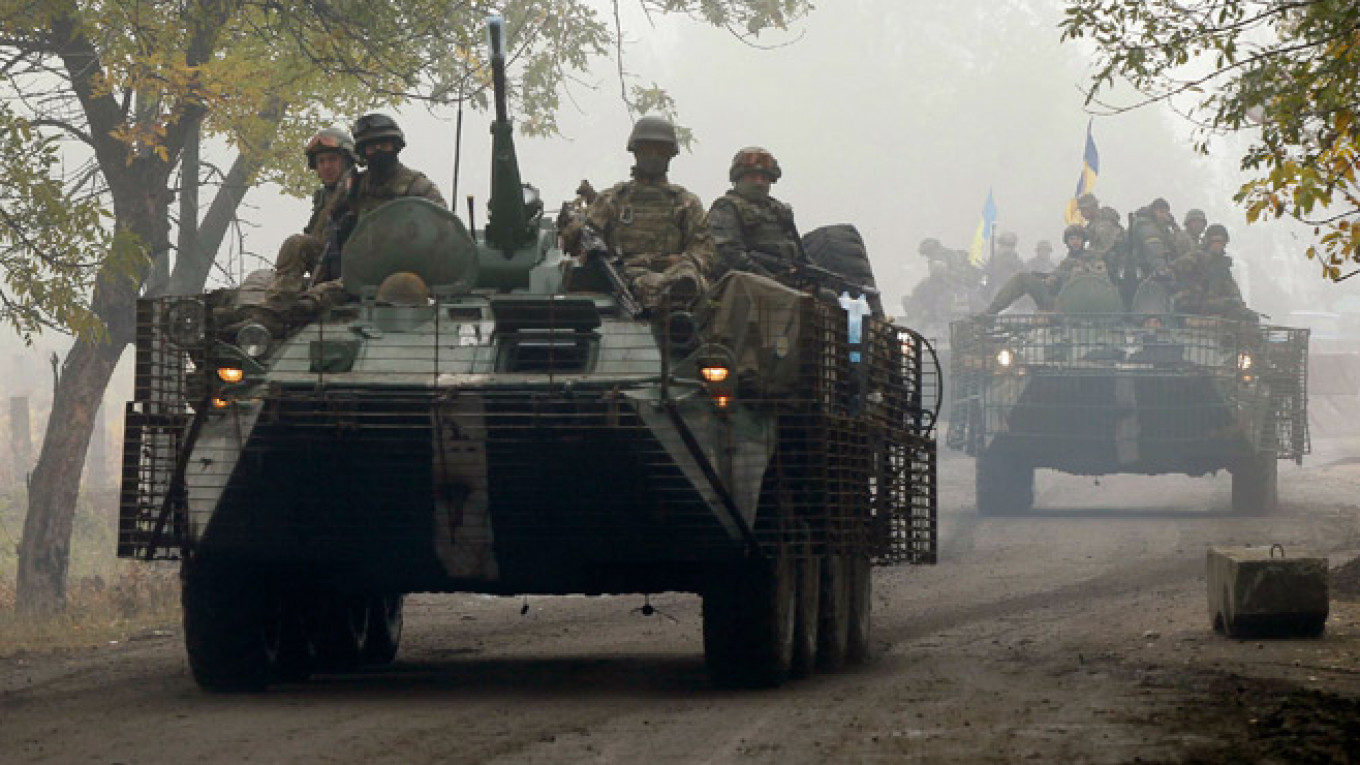Writer Isaac Babel is known for two short-story collections: "The Odessa Tales" and "Red Cavalry Stories." Both were banned when Babel disappeared into the gulag in 1939 and re-emerged only during Khrushchev's thaw. The protagonist of the first book, the king of Odessa gangsters Benya Krik, became instantly popular. Babel's romanticized portrayal of a type known as a "thief-in-law" — a thief living by thieves' laws — had a broad appeal in Soviet society, which after Stalinist repressions had become permeated with prison mentality and imbued with prison slang.
"Red Cavalry" is a work of literary genius, but it remained only semi-legal in the late Soviet era. Its famous 1966 staging by the Vakhtangov Theater presented a heroic, sanitized version, stripped of its disturbing aspects. In any case, in Brezhnev's drab, workaday Soviet Union the book seemed like ancient history, remote and irrelevant.
Now, suddenly, it reads like up-to-date news reports from Donetsk. "Red Cavalry" takes place during the Polish campaign of 1919, and, with a few adjustments, the Poland in the book can be substituted for today's Ukraine. Many Russians don't believe that Ukraine is a real nation, and Poland back then was also a novel concept. Lenin saw it as a buffer separating Germany from him and his dream of worldwide revolution. For Putin, Ukraine is key to Russia's dominance of the post-Soviet area and, eventually, the reconstitution of the Soviet Union.
Plenty of details in "Red Cavalry" echo the current conflict. Babel's characters refer to Poles as "szlachta," or Polish noblemen, just as today's Russian propaganda talks of the Kiev junta. Some Red cavalrymen were circus performers and entertainers in civilian life, just as today's separatists include a Russian Civil War re-enactor and a man who worked seasonally as Santa Claus. Babel mentions a Serb fighting the Poles and an American airplane strafing the Reds, just as Russian media has highlighted the participation of foreigners in the current conflict.
Babel's admiration for tough men of action is palpable. They are cruel and ruthless and given to gratuitous acts of violence, but they can be pure and gentle, too. They have an innate sense of justice and, in any case, they're fighting for the right cause. This parallels the attitudes of many pro-Putin Russian intellectuals. Nationalist writer Zakhar Prilepin even writes vignettes about militiamen a la Babel for Komsomolskaya Pravda.
Since the late 19th century, Russia has swung between political and cultural radicalism and deeply ingrained conservatism. Radical movements produced a splendid artistic and literary avant-garde, but they also destroyed the Russian state and brought Lenin's Bolsheviks to power.
In the 1930s, Stalin spearheaded a conservative reaction. The revolutionaries were shot, lower-middle-class mores and moral attitudes reaffirmed, and many of the tsarist customs and practices brought back, including a form of serfdom masquerading as collective farms. Radicalism in the arts was also crushed, and Babel himself fell victim to the new tastes in literature.
Russians seemed to have been permanently cowed, but apparently their radicalism was merely dormant. The annexation of Crimea was a radical step, and it was instantly hailed by most Russians.
We can't know how far radicalization will go and what forms it will take. It is unlikely, however, to produce internationally renowned writers such as Babel and is doomed to be recorded for posterity by the likes of Prilepin.
Alexei Bayer, a native Muscovite, lives in New York. His detective novel "Murder at the Dacha" was published by Russian Life Books in 2013.
A Message from The Moscow Times:
Dear readers,
We are facing unprecedented challenges. Russia's Prosecutor General's Office has designated The Moscow Times as an "undesirable" organization, criminalizing our work and putting our staff at risk of prosecution. This follows our earlier unjust labeling as a "foreign agent."
These actions are direct attempts to silence independent journalism in Russia. The authorities claim our work "discredits the decisions of the Russian leadership." We see things differently: we strive to provide accurate, unbiased reporting on Russia.
We, the journalists of The Moscow Times, refuse to be silenced. But to continue our work, we need your help.
Your support, no matter how small, makes a world of difference. If you can, please support us monthly starting from just $2. It's quick to set up, and every contribution makes a significant impact.
By supporting The Moscow Times, you're defending open, independent journalism in the face of repression. Thank you for standing with us.
Remind me later.






